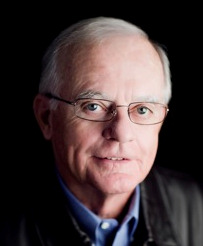
Q: When did you decide you wanted to be a writer?
Back in high school I wrote a short story in English class. My English teacher, Father Kelly, took me aside and told me it was an exceptional piece of work. That encouragement prompted me to join the school newspaper. In college I was an editor of the newspaper and won awards for my poetry, some of which was published. However, I hit a wall writing fiction.
Q: So you gave up on the idea of being a writer?
Oh no. I still wanted to write a novel, but I think I liked the idea of being a writer more than sitting down and putting pen to paper. The thought of leading the romantic lives of Ernest Hemingway and F. Scott Fitzgerald in Paris and running with the bulls in Pamplona appealed to me. I forgot there’s work involved in creating a novel.
Q: Where did your ideas come from for The Riviera Contract? 
In my travels, I bumped into elements of the shadow war waged against terrorism following the attack on the World Trade Center. The South of France, especially Provence, is a beautiful area and I thought, why not place the action there. What a contrast, between vibrant life and quick death! While writing the book, I watched Alfred Hitchcock’s “To Catch a Thief” a couple of times just to get in the mood.
Q: What personal experiences are helpful to you in writing novels?
Sticking to what you know, what you’ve experienced saves a lot of research time. I served with the FBI for 24 years, and then worked for the Intelligence Community, traveling the world for 17 years. So I use that knowledge for the mysteries and espionage thrillers I write.
Q: What personal experiences are helpful to you in writing novels?
Sticking to what you know, what you’ve experienced saves a lot of research time. I served with the FBI for 24 years, and then worked for the Intelligence Community, traveling the world for 17 years. So I use that knowledge for the mysteries and espionage thrillers I write.
Q: What do you do with the ideas that come for future stories?
I jot them down in a spiral notebook. Also, I cut out newspaper articles of stories that have a twist, sort of out of the ordinary.
Q: What’s your best time to write?
Early morning, before the sun is up. Is best for me when I am writing new material. Rewrites I do in the afternoon. I also listen to music while writing. Sometimes the rhythm and mood reaches into the prose, especially classical and New Age music.
Q: How do you develop your characters?
Usually I start with one or two characters who are necessary for the opening of the story. Then as more characters are introduced I find their personalities and behavior have to drive the plot. Now all along I’m giving them physical traits and little tics that I’ve observed from people in real life. Then, as any writer will tell you, the characters begin developing and as they do in relation to the other characters, you find you’ve set in motion something very interesting. Now that’s the fun part of writing, watching the story unfold sometimes in unexpected directions. The hard part, the rewrites, comes later and last longer.
Q: What advice would you give an aspiring writer?
Start writing about something you feel strongly about, and then find a writing group that matches your style of writing and your personality. It’s essential to find the correct mix for you in a writing group and one where the members are supportive of your efforts. Of course, it works both ways, you have to be willing to support them. I’ve been quite fortunate in having found an excellent group of writers. Their support has been immeasurable. I hope I helped them out as much as they’ve helped me.
Q: How does one find a writing group?
Best place to start is at your local library. Ask the librarians, any of whom will be more than happy to help you.
Q: What’s your next project?
I have a manuscript with my editor: A Suitable Spy, a World War II espionage novel in South America. The FBI against the Fascists, specifically the Nazis in Argentina. I’ve started a new novel, a surrealistic spy spoof, titled, Special Agent Bumper Ballantyne in the Hollywood Bubble.
Q: Who are your favorite writers?
From the beginning, Ernest Hemingway and John Steinbeck have always been favorites. Lately, I’ve been reading the novels of Alan Furst, Daniel Silva, Robert Dugoni, Tom Perry, Martin Walker, and Stella Rimington.
About the Author
Arthur Kerns spent most of his FBI career in the New York City and Washington, DC. Following graduation from college, he did a stint with the US Navy amphibious forces, and then joined the FBI with a career in counterintelligence and counterterrorism. Retiring from the FBI, he became a consultant for the Director of Central Intelligence and the Department of State. His lengthy assignments took him to over sixty-five countries. He attended Archmere Academy in Claymont, Delaware, earned a degree in International Relations from St. Joseph’s College in Philadelphia, and received an MBA from New York University. He spent a year studying Arabic at the Defense Language Institute in Monterey, California. A past president of the Arizona chapter of the Association of Former Intelligence Officers, he tries to spend as much time as possible in the Monterey California Bay area. His award-winning short stories have been published in a number of anthologies, most recently, SoWest: Desert Justice.
Diversion Books published his debut novel, an espionage thriller, The Riviera Contract, in March 2013 and the sequel, The African Contract, May 2014. The Yemen Contract was published in June, 2016.
The travel writer Finbarr Costanzia conducted the following interview of Arthur Kerns: